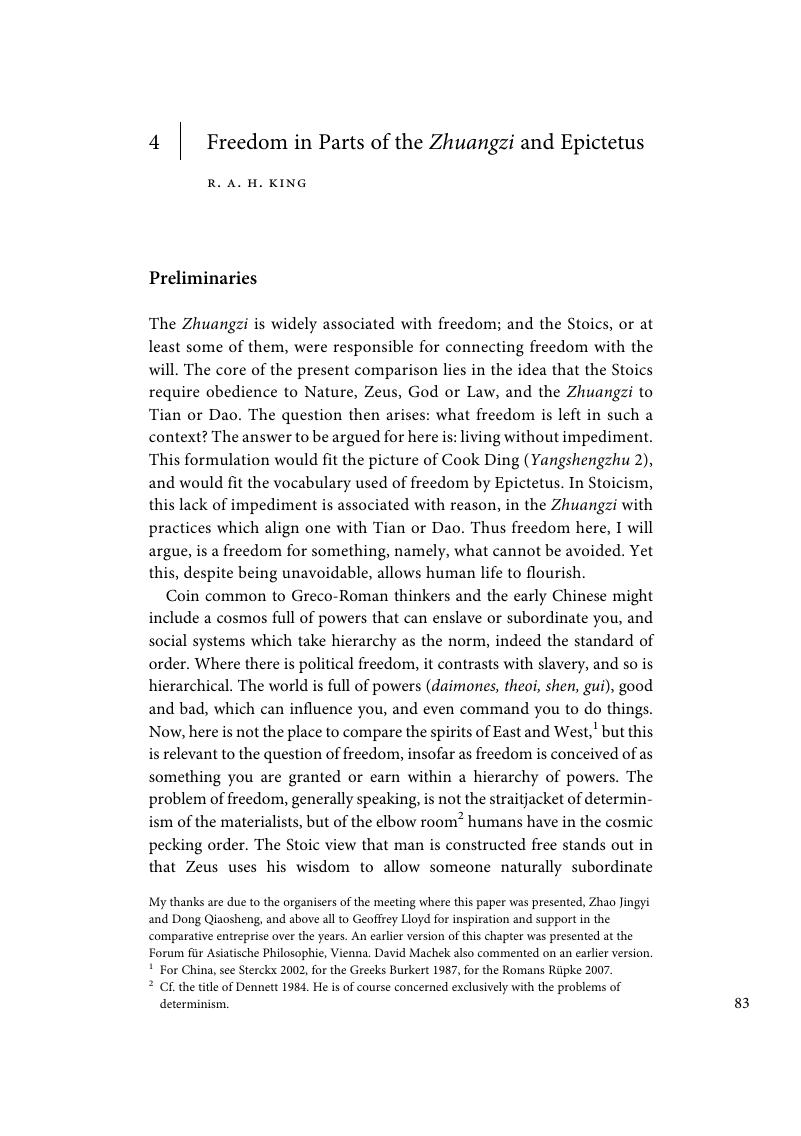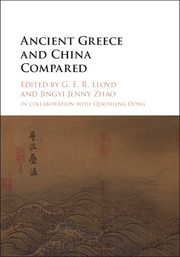Book contents
- Ancient Greece and China Compared
- Ancient Greece and China Compared
- Copyright page
- Contents
- Figures
- Acknowledgements
- Notes on Editions
- Contributors
- Introduction: Methods, Problems and Prospects
- Part I Methodological Issues and Goals
- Part II Philosophy and Religion
- 4 Freedom in Parts of the Zhuangzi and Epictetus
- 5 Shame and Moral Education in Aristotle and Xunzi
- 6 Human and Animal in Early China and Greece
- 7 Genealogies of Gods, Ghosts and Humans: The Capriciousness of the Divine in Early Greece and Early China
- Part III Art and Literature
- Part IV Mathematics and Life Sciences
- Part V Agriculture, Planning and Institutions
- Afterword
- Index
- References
4 - Freedom in Parts of the Zhuangzi and Epictetus
from Part II - Philosophy and Religion
Published online by Cambridge University Press: 21 December 2017
- Ancient Greece and China Compared
- Ancient Greece and China Compared
- Copyright page
- Contents
- Figures
- Acknowledgements
- Notes on Editions
- Contributors
- Introduction: Methods, Problems and Prospects
- Part I Methodological Issues and Goals
- Part II Philosophy and Religion
- 4 Freedom in Parts of the Zhuangzi and Epictetus
- 5 Shame and Moral Education in Aristotle and Xunzi
- 6 Human and Animal in Early China and Greece
- 7 Genealogies of Gods, Ghosts and Humans: The Capriciousness of the Divine in Early Greece and Early China
- Part III Art and Literature
- Part IV Mathematics and Life Sciences
- Part V Agriculture, Planning and Institutions
- Afterword
- Index
- References
Summary

- Type
- Chapter
- Information
- Ancient Greece and China Compared , pp. 83 - 109Publisher: Cambridge University PressPrint publication year: 2018
References
- 1
- Cited by

